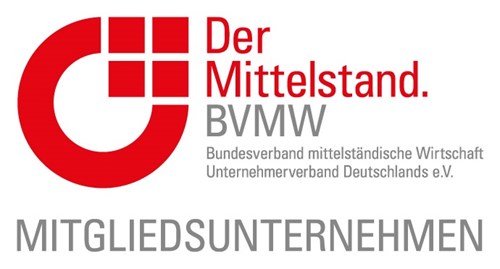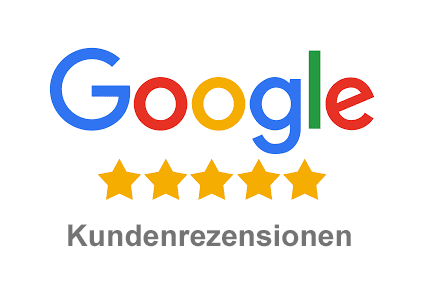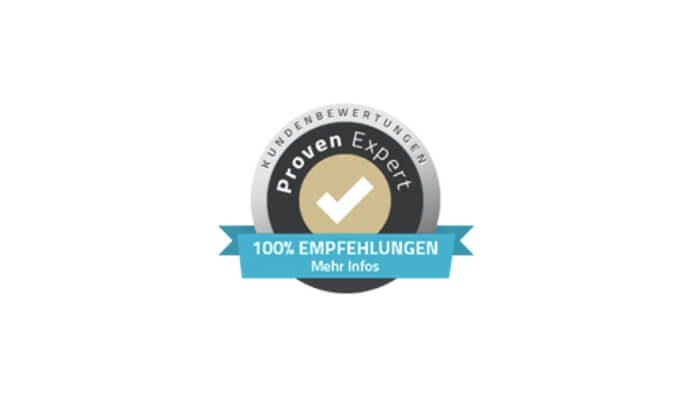Businesspläne
Wir sind einer der führenden Businessplan Experten in Deutschland
Mehr erfahren
Mitglied des BVMW

Anerkannt durch das Bundesamt für Wirtschaft und Ausfuhrkontrolle

Kofinanziert von der Europäischen Union

Bei uns sind Sie zufrieden!

Vertrauen durch Rezensionen


Wir unterstützen Sie bei Ihrer Existenzgründung. Ob Existenzgründung oder Unternehmenserweiterung, wir unterstützen Sie bei Ihrem Vorhaben. Unser Team mit einer Gesamterrfahrung von über 20 Jahren im Bereich der Unternehmensberatung und Existenzgründung steht Ihnen mit Rat und Tat zur Seite. Wir begleiten Sie von der Idee bis zur Umsetzung und darüber hinaus. Wir sind Ihr Partner für die Erstellung von Businessplänen, Finanzierungsberatung, Fördermittelberatung und vieles mehr.
Egal ob Sie aus Deutschland oder einem anderen Land kommen: wir sind Experten bei der Gründung von Unternehmen in Deutschland. Wir sind Ihr Partner für die Erstellung von Businessplänen, Finanzierungsberatung, Fördermittelberatung und vieles mehr. Ich freue mich auf ein Gespräch mt Ihnen!

Als registrierter Unternehmensberater bei der BAFA können Ihnen je nach Bundesland bis zu 90% der Beratungskosten erstattet werden. Teilweise sind unsere Beratungen sogar bis zu 100% förderungsfähig. Über die Fördermöglichkeiten beraten wir Sie gerne in einem kostenlosen Erstgespräch.
Lassen Sie sich bankenfertige Businesspläne nach KfW-Vorgaben von Fachleuten erstellen.
Als erfahrene Existenzgründungsberatung unterstützen wir Sie bei Ihrer Existenzgründung.
Wir beraten Sie zu staatlichen Förderprogrammen sowie zu Kreditmöglichkeiten von Banken und Investorennetzwerken.
Mit einem AVGS Gutschein lassen sich eine Vielzahl unsrer Beratungsangebote bis zu 100% finanzieren. Hier sind verschiedene Leistungen staatlich förderungsfähig.
Wenn Sie aus dem Ausland sind und in der EU ihr Business starten möchten, sind wir der richtige Ansprechpartner.
Wir unterstüezn Sie auch bei einer Vielzahl von Fragen hinsichtlich Ihres Marketings

Wir zeichnen uns durch mehrjährige Erfahrung und Expertise auf dem Gebiet der Existengründung aus. Wir sind registrierte Unternehmensberater bei der BAFA und bekommen durchgehend postive Rückmeldung für unsere Businesspläne. Wir sind stolz darauf, dass unsere Kunden uns weiterempfehlen.

Mit einem Team aus erfahren Beraten aus dem Bereich der Unternehmensberatung, Steuerberatung und Rechtsberatung bieten wir Ihnen eine umfassende Beratung aus einer Hand. Ergänzt wird unser Team durch Experten aus dem Bereich der Finanzierung und der Fördermittelberatung.

In Deutschland und international unterstützen wir bei der EU-weiten Gründungen und Unternehmenserweiterungen. Wir vernetzen Gründer international mit Investoren und ermöglichen Ihnen in Deutschland oder anderen EU-Staaten Ihr Business zu gründen und ihr Unternehmen zu erweiteren. Hiebei können wir auf mehrere Investorennetzwerke zurückgreifen und damit auch Kredite in 7 stelligen Bereichen ermöglichen.
Unser professionelles Team unterstützt Sie bei allen Fragen zur Existenzgründung und darüber hinaus.
Wir haben schon vielen Kunden aus den unterschiedlichsten Bereichen geholfen, einen professionellen Businessplan zu erstellen. Hier finden Sie einige Beispiele von Businessplänen, die wir erstellt haben.
Internationale Kunden aus den verschiedensten Branchen vertrauen auf unsere Expertise und unsere Lösungen. Wir sind stolz darauf, dass wir mit vielen unserer Kunden bereits seit Jahren erfolgreich zusammenarbeiten.

Nochmals vielen Dank für die tolle Arbeit wir sind sehr zufrieden. .

Alles war sehr gut.

Eine sehr gute Zusammenarbeit und ein gelungener Businessplan in der kurzen Zeit.
Copyright © Business Start EU GmbH. All Rights Reserved by Business Start EU GmbH